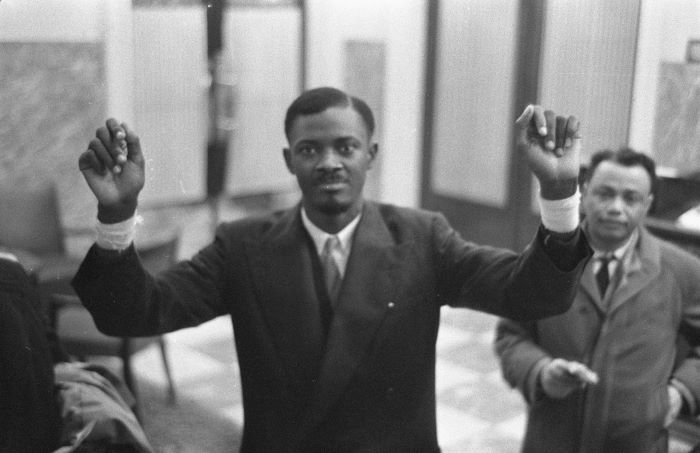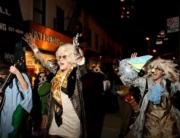![]() Belgian director Johan Grimonprez’s insightful documentary revolves around the 1961 assassination of Congolese leader Patrice Lumumba, with the complicity of Belgium, England, and the United States. This event is just one piece of a complex portrait that explores how Western countries reacted to the rapid decolonization of Africa.
Belgian director Johan Grimonprez’s insightful documentary revolves around the 1961 assassination of Congolese leader Patrice Lumumba, with the complicity of Belgium, England, and the United States. This event is just one piece of a complex portrait that explores how Western countries reacted to the rapid decolonization of Africa.
Six months before Lumumba’s murder, 16 newly independent African nations were admitted to the United Nations, disrupting the balance of power within the U.N., which had previously been dominated by the Western colonial powers and their allies. Soviet Premier Nikita Khrushchev’s call for continued decolonization alarmed the U.S. and its allies, who feared that the Cold War would spread to the African continent.
The U.S. State Department sprang into action, recruiting jazz luminaries as de facto ambassadors for democracy. Louis Armstrong, the first of many jazz musicians and singers to tour countries seen as potential hotspots for political unrest, visited the Republic of Congo in 1960. But why the Congo? There is no denying that President Dwight Eisenhower wanted Lumumba removed—he famously expressed the hope that Lumumba would “fall into a river full of crocodiles”—because Lumumba was perceived to be leaning toward Communism. In reality, however, Lumumba had first asked the U.S. for financial aid, and when there was no response, he turned to the Soviet Union.
A more significant reason the Americans, British, and Belgians wanted Lumumba ousted was exploitation: Congo held vast supplies of minerals like copper, tin, and—most crucially—uranium, a key component in nuclear weapons. Clearly, whichever nation or group controlled the Congolese government would have access to the world’s largest and most easily extractable uranium supply. (Today, the country is a major exporter of cobalt, used to power the batteries in many of our electronic devices.)
Illuminating the complex political situation in the Congo during this time isn’t easy, but Grimonprez’s ambitious mosaic provides fascinating context for these historical events while telling equally riveting dual stories: the tense atmosphere of colonialism and Communism, alongside the recruitment of Black musicians as unwitting tools promoting American culture. Alongside Armstrong, artists like Dizzy Gillespie, Duke Ellington, and Nina Simone were involved—none of them aware that they were being used as decoys for their handlers’ political aims.
Grimonprez bookends his film with the daring protest led by singer Abbey Lincoln and drummer Max Roach, in which dozens infiltrated a U.N. Security Council meeting soon after Lumumba’s assassination. Lincoln and Roach’s anguished cry of despair, the song “Prayer” from Roach’s 1960 album We Insist! Max Roach’s Freedom Now Suite, makes a memorable appearance as Lincoln’s impassioned visage and voice dominate the screen.
Indeed, the entire film is artfully structured around musical interludes that float through its 150-minute runtime. The director uses vintage news footage and speeches; new and archival interviews with major figures such as Congolese writer In Koli Jean Bofane, African activist and politician Andrée Blouin, and the always eloquent Malcolm X; excerpts from Khrushchev’s diaries; and the liberal use of on-screen text that often wittily refers to the events being shown. While many voices are heard throughout, the wide-ranging music becomes another pivotal character, providing wordless yet powerful commentary.
Despite its rigor and intelligence, Soundtrack to a Coup d’Etat retains a welcome looseness and improvisatory feel, much like the best jazz.







Leave A Comment